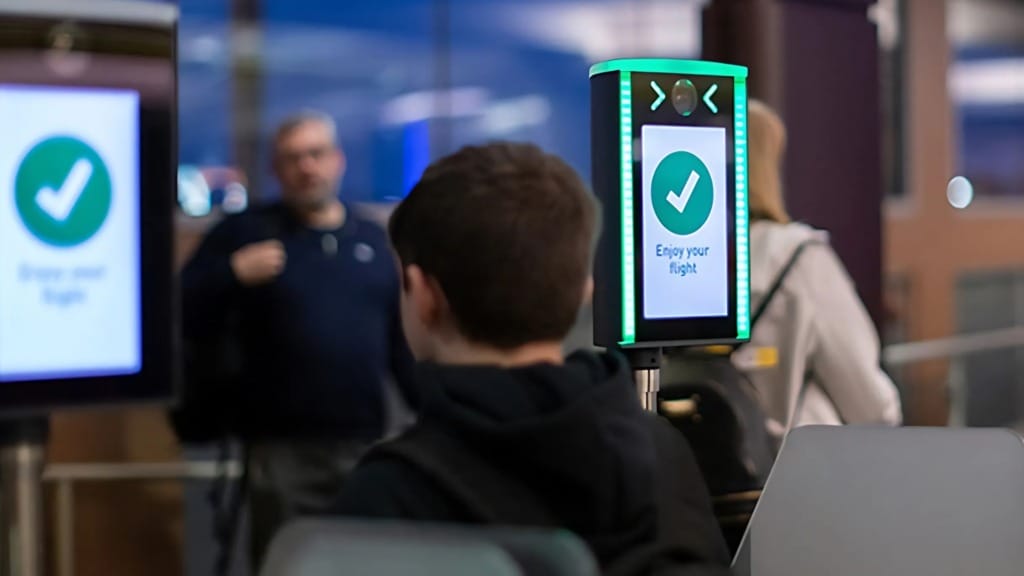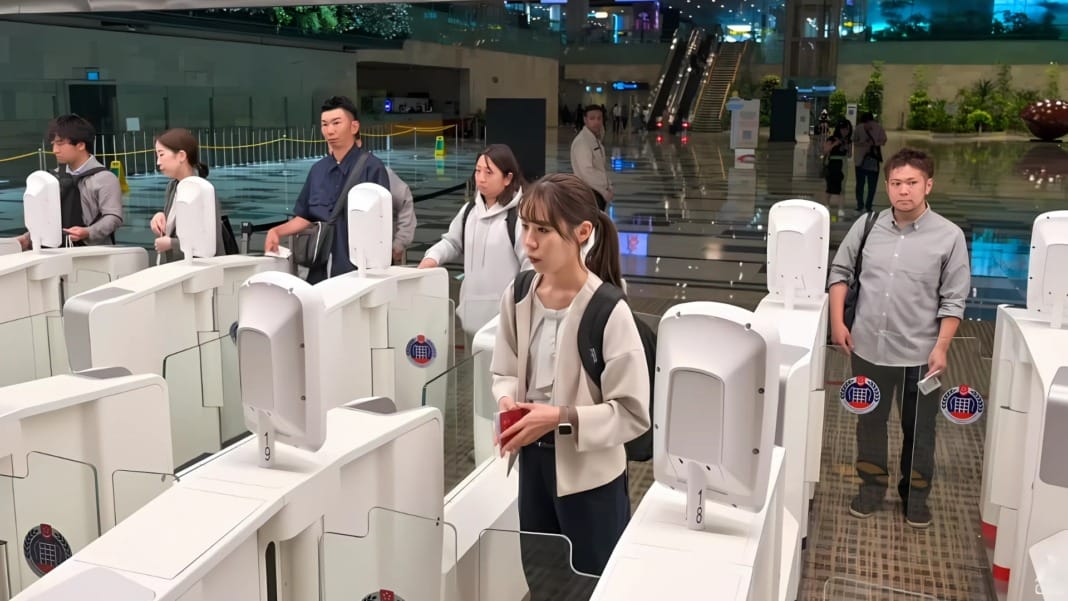Air travel is entering a new era, with biometric technology leading the charge towards a future where physical passports may no longer be necessary. Airports worldwide are adopting advanced systems such as facial recognition, fingerprint scanning, and iris detection to make security checks faster, more accurate, and more secure. These technologies are about transforming the entire travel experience.
As more airports embrace these innovations, you can expect shorter queues, reduced reliance on physical documents, and a smoother journey from check-in to boarding. However, with progress comes challenges, including concerns about privacy, data security, and standardisation across borders. This article explores how biometric technology is reshaping airport operations, the advantages it brings, the challenges it faces, and the path ahead for passport-free travel.
How biometric technology is reshaping airports
Biometric technology uses your unique physical characteristics—such as your face, fingerprints, or iris patterns—to verify your identity. Unlike traditional passports and boarding passes, biometric data cannot be easily forged, making it a highly secure form of identification. Airports worldwide are now integrating these systems into key stages of the passenger journey, aiming for a seamless and paperless travel experience.
At Singapore’s Changi Airport, facial recognition technology allows passengers to pass through immigration checkpoints in as little as 10 seconds. Cameras capture and compare facial data with secure government databases, removing the need for manual checks. Similarly, Australia and New Zealand have adopted SmartGate systems, automating border control with fingerprint and facial scans, drastically reducing waiting times.
Abu Dhabi’s Zayed International Airport plans to take this further by becoming the world’s first airport to integrate facial recognition at every checkpoint fully. By 2025, passengers will no longer need passports or boarding passes—all processes will rely on biometric verification, creating a fully touchless travel experience.
However, the success of these systems depends on global alignment. Different airports use varying technologies, and international passengers may still encounter inconsistencies without standardised systems.
Additionally, the implementation of these technologies requires significant investment. Smaller airports might struggle to match the scale and efficiency of hubs like Changi or Abu Dhabi. Despite these hurdles, the potential benefits are driving rapid adoption worldwide.
The benefits of biometric travel systems

Biometric systems offer numerous advantages, benefiting both airports and passengers. At the forefront is efficiency. With biometric verification, long queues at immigration, security, and boarding gates are significantly reduced, allowing passengers to move through checkpoints seamlessly.
Enhanced security is another key benefit. Biometric data is unique to each individual, making it nearly impossible for someone to impersonate a traveller. Airports can more effectively prevent identity fraud and ensure that only authorised individuals access secure areas.
From an operational standpoint, biometric systems help airports handle larger passenger volumes without requiring additional staff. This is particularly valuable during peak travel seasons when overcrowding can cause significant delays. Passengers also benefit from personalised experiences. With biometric technology integrated into airline and airport apps, you can manage your travel credentials from your smartphone. Some systems even enable you to pre-clear certain checkpoints before arriving at the airport, saving valuable time.
Lastly, real-time data and analytics generated by biometric systems provide airports with better crowd management tools. Airports can predict bottlenecks, optimise staffing levels, and adjust operations dynamically to improve passenger flow.
The challenges of biometric technology adoption
While the benefits are clear, biometric technology comes with several significant challenges. One of the most pressing concerns is privacy. Biometric data, such as facial scans and fingerprints, are highly sensitive, and passengers must trust that this data is stored securely and not misused.
Data security is another primary concern. Biometric databases are attractive targets for cybercriminals, and a data breach could have far-reaching consequences. Unlike passwords, you cannot change your biometric data if compromised, raising long-term security risks.
Global standardisation also remains a hurdle. Different countries and airports often use incompatible biometric systems, creating inconsistencies for international travellers. Efforts by organisations like the International Air Transport Association (IATA) are working towards global standards, but widespread adoption is still a work in progress.
Furthermore, technological limitations can exclude certain groups of passengers. Older systems may struggle with diverse skin tones, facial structures, or physical disabilities, leading to inaccuracies and frustration for affected travellers.
Lastly, public acceptance remains a challenge. Some passengers are uncomfortable sharing their biometric data, fearing increased surveillance and reduced privacy. Building trust through transparency and robust regulatory frameworks will be essential for widespread acceptance.
The future of passport-free travel
The future of air travel is rapidly approaching a fully biometric-driven experience, and global initiatives are already paving the way. The IATA’s One ID project aims to establish a universal digital identity for passengers, enabling seamless verification across airports and countries.
In the near future, your biometric profile might be linked directly to your smartphone or a secure digital wallet. You can only share your biometric data with airports and airlines when needed, giving you greater control over your personal information.
However, achieving this vision will require collaboration across borders. Governments, airports, and airlines must align on technology standards, data-sharing protocols, and privacy regulations to create a truly integrated system. Without such alignment, the benefits of biometric travel will remain limited to select airports and regions.
Additionally, the conversation around ethical data use will need to evolve. Clear data storage, access, and usage policies must be implemented to build public trust and ensure compliance with privacy laws.
While challenges remain, the direction is clear: biometric technology will soon become the standard for global air travel. As these systems become more sophisticated and widely adopted, you can look forward to a future where your face or fingerprint is all you need to board a plane.





